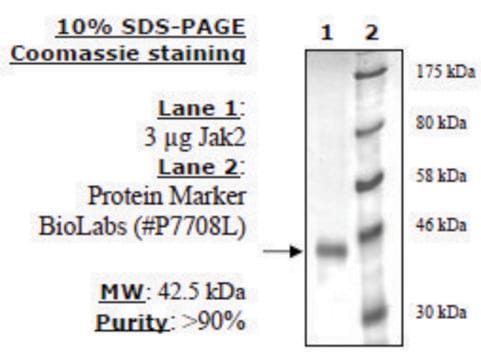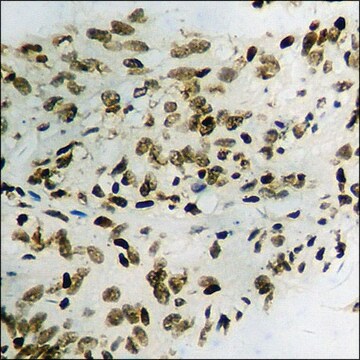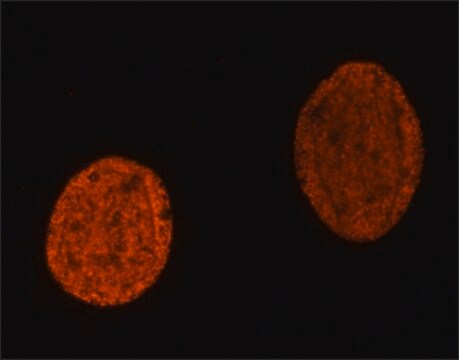SAB4200483
Anti-JAK2 antibody, Mouse monoclonal
clone 10.1.5, purified from hybridoma cell culture
Synonym(s):
Anti-JAK-2, Anti-JTK10, Anti-Janus kinase 2, Monoclonal Anti-JAK2 antibody produced in mouse
About This Item
Recommended Products
biological source
mouse
Quality Level
conjugate
unconjugated
antibody form
purified from hybridoma cell culture
antibody product type
primary antibodies
clone
10.1.5, monoclonal
form
buffered aqueous solution
mol wt
antigen ~125 kDa
species reactivity
bovine, human
concentration
~1.0 mg/mL
technique(s)
indirect immunofluorescence: 2.5-5.0 μg/mL using MCF7 cells.
western blot: 2.0-4.0 μg/mL using TF1 total cell extracts.
UniProt accession no.
shipped in
dry ice
storage temp.
−20°C
target post-translational modification
unmodified
Gene Information
human ... JAK2(3717)
General description
Immunogen
Application
- immunoblotting
- immunocytochemistry
- flow cytometry
Biochem/physiol Actions
Physical form
Disclaimer
Not finding the right product?
Try our Product Selector Tool.
recommended
Storage Class Code
10 - Combustible liquids
WGK
WGK 2
Flash Point(F)
Not applicable
Flash Point(C)
Not applicable
Certificates of Analysis (COA)
Search for Certificates of Analysis (COA) by entering the products Lot/Batch Number. Lot and Batch Numbers can be found on a product’s label following the words ‘Lot’ or ‘Batch’.
Already Own This Product?
Find documentation for the products that you have recently purchased in the Document Library.
Our team of scientists has experience in all areas of research including Life Science, Material Science, Chemical Synthesis, Chromatography, Analytical and many others.
Contact Technical Service








